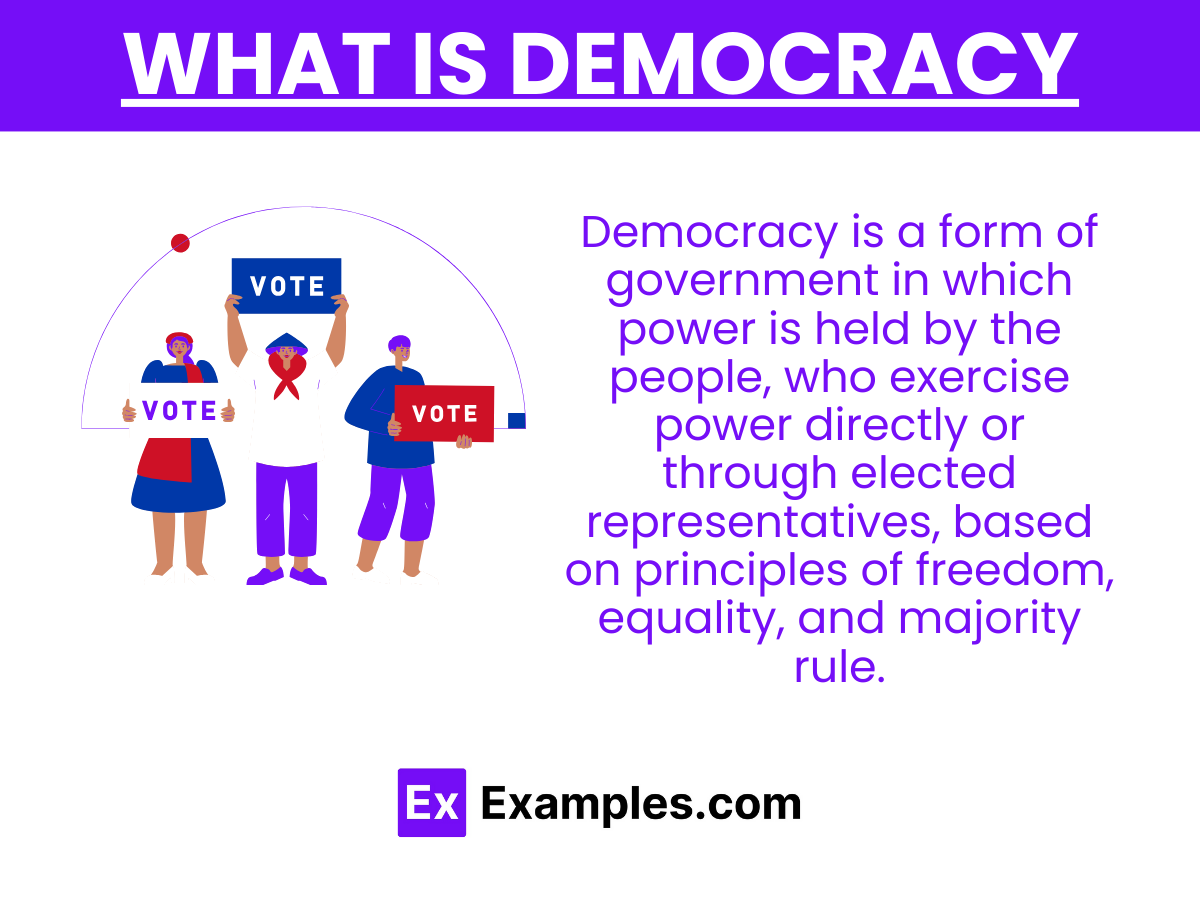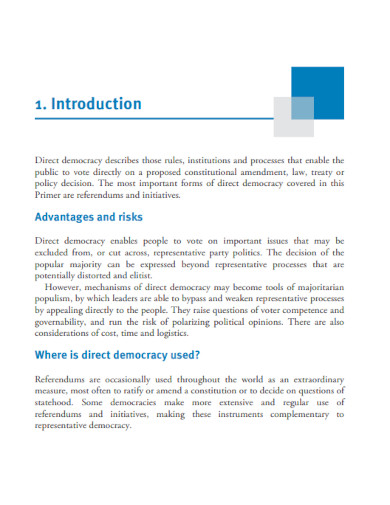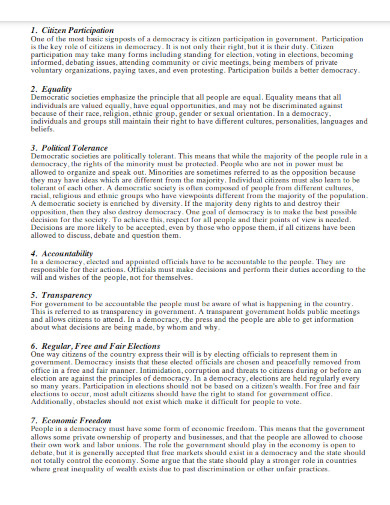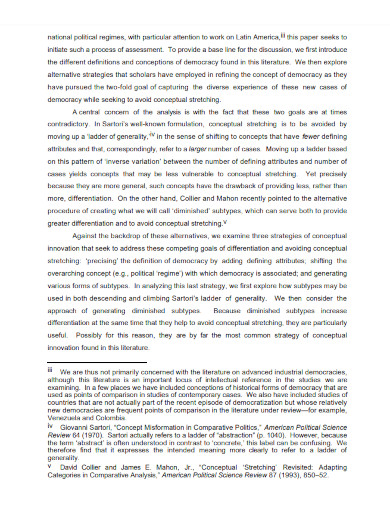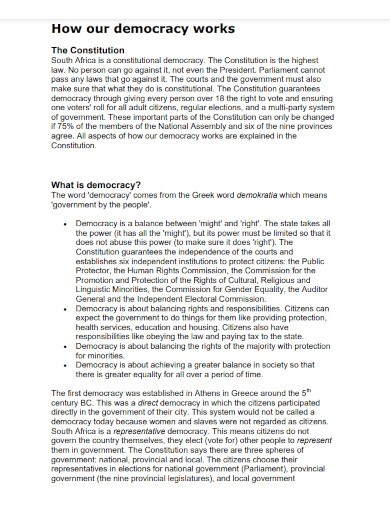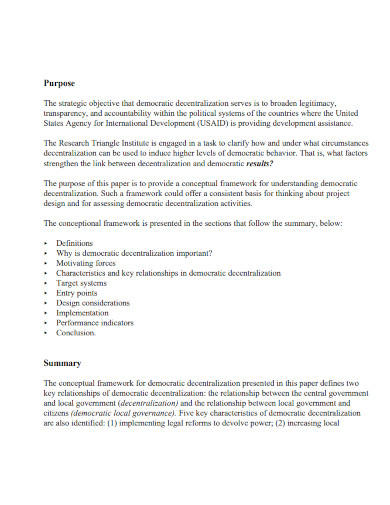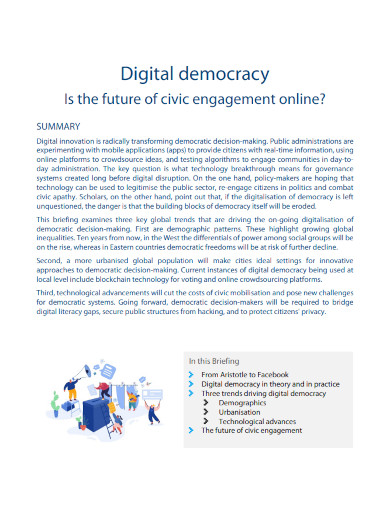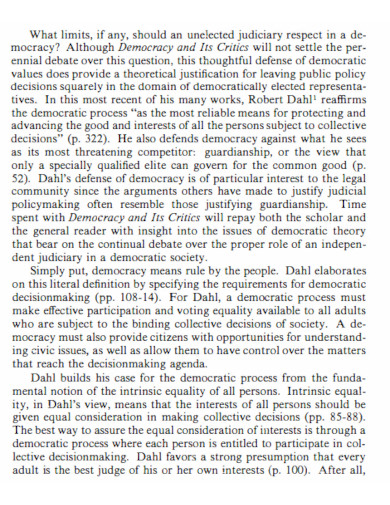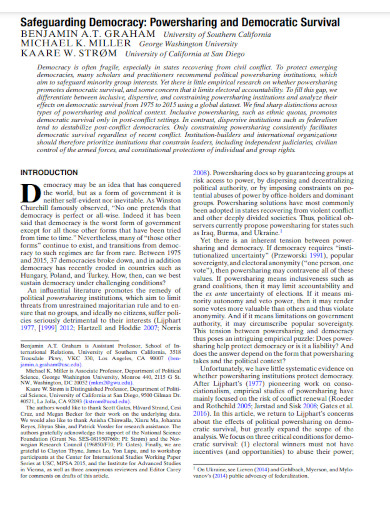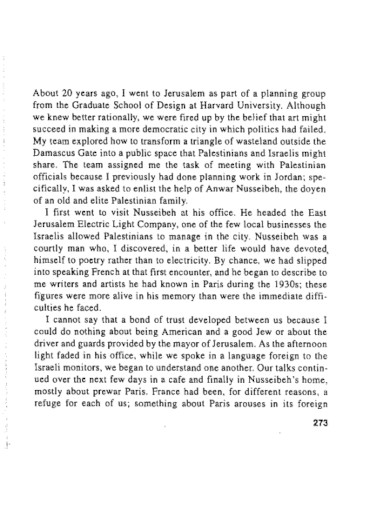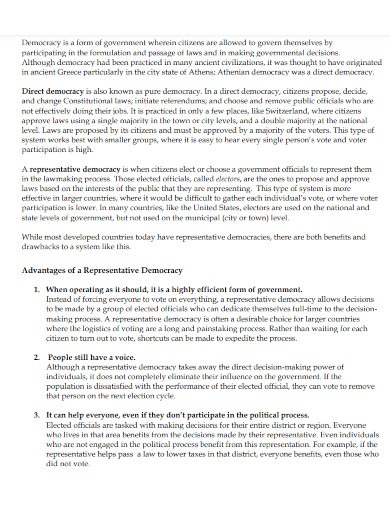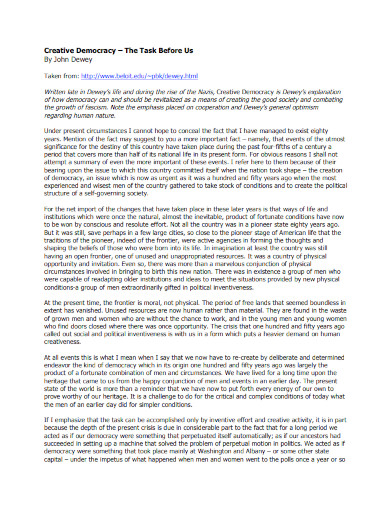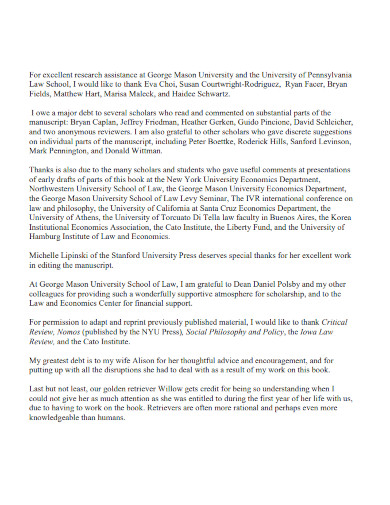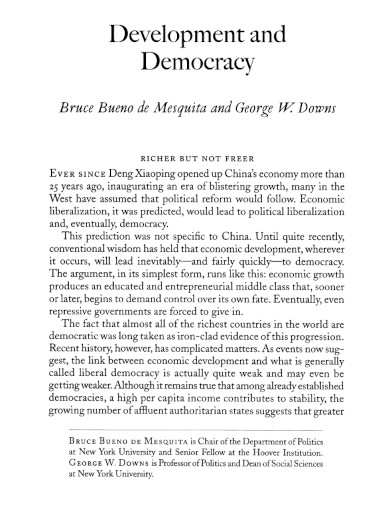12+ Democracy Examples to Download
Every country or nation in the world has a political structure that will not only provide laws and structure to their citizens but will also improve the quality of life. Democracy is a type of government a country can adopt, which will have its contexts, themes, tones, benefits, socio-historical roots, and culture-related practices.
What Is Democracy?
Democracy is one of the main types of government structures a country can adopt, where the country’s citizens can elect and opt for their government officials and leaders. Not only that, but a country with democracy can also adopt various political structures like checks and balances, participatory democracy, concurrent powers, and more.
Examples of Democracy
Democracy, characterized by the principles of popular sovereignty, equality, and freedom, manifests in various forms across the globe. Each nation’s democratic system reflects its unique historical, cultural, and social contexts. Here are some notable examples:
1. United States of America – A Representative Democracy
- System: The USA operates as a federal republic with a strong tradition of representative democracy. Citizens elect representatives to both federal and state legislatures, who then make laws and policies on their behalf.
- Features: It features a clear separation of powers among the executive (headed by the President), legislative (Congress), and judicial branches (Supreme Court and lower courts), each with distinct roles and checks and balances to prevent abuse of power.
- Significance: The American model of democracy is one of the oldest continuous democracies in the world, with its Constitution serving as a model for many other nations.
2. Switzerland – A Direct Democracy
- System: Switzerland is known for its direct democracy, where citizens have the right to vote on a wide range of issues directly, bypassing elected representatives for specific decisions.
- Features: This system is characterized by mechanisms such as referendums and initiatives, allowing Swiss citizens to propose new laws or amendments to existing laws and vote on them.
- Significance: This model showcases an extensive level of citizen participation in the democratic process, making it unique among modern democracies.
3. India – A Parliamentary Democracy
- System: India, the world’s largest democracy, operates under a parliamentary system derived from the British model.
- Features: It has a bicameral legislature with a lower house (Lok Sabha) and an upper house (Rajya Sabha), where members are either directly elected by the people or appointed. The Prime Minister, as the head of government, is typically the leader of the majority party in Lok Sabha.
- Significance: India demonstrates how democracy can function in a highly diverse society, with numerous languages, religions, and ethnic groups coexisting under a single democratic framework.
4. Germany – A Federal Parliamentary Republic
- System: Germany combines elements of parliamentary democracy within a federal system, where power is distributed between the federal government and the states (Länder).
- Features: The Chancellor, equivalent to a Prime Minister, is the head of government and is elected by the Bundestag, the lower house of parliament. The country also features a strong emphasis on consensus politics and proportional representation.
- Significance: Germany’s post-World War II democratic system is noted for its stability, economic strength, and commitment to human rights and the rule of law.
5. Brazil – A Presidential Democracy
- System: Brazil operates as a federal presidential republic, where the President serves as both the head of state and the head of government.
- Features: Its system is marked by the direct election of the President by the people for a four-year term, with the possibility of re-election for one additional term. The Brazilian model also includes a multi-party system with a bicameral legislature.
- Significance: Brazil illustrates the dynamics of democracy in a developing country, with its vibrant political culture and challenges such as political corruption and social inequality.
1. Direct Democracy Template
2. Principles of Democracy Template
3. Democracy with Adjectives Template
4. Democracy Works Template
5. Democratic Decentralization Template
6. Digital Democracy Template
7. Democracy and Its Critics Template
8. Safeguarding Democracy Template
9. The Spaces of Democracy
10. Representative Democracy Template
11. Creative Democracy Template
12. Democracy and Political Ignorance
13. Development and Democracy Template
.
It is important to know how to differentiate democracy from other types of government structures as this will not only affect one’s powers and responsibilities to the nation but will also influence one’s quality of life. It is easy to understand and differentiate democracy from other forms of government due to specific elements and characteristics that are unique to this structure. A democratic country puts importance on the citizen’s freedoms and rights. Determine if the country respects and allows specific freedoms and rights like freedom of speech and freedom of assembly. In a democratic government structure, the citizens have more property rights and can own specific portions of the property. Identify the property rights the citizens of the country can avail and use in their everyday lives. In a democratic structure, there is a separation of power that allows other parts or sections of the government to handle specific responsibilities and powers while keeping the other parts in check. You must determine if there is a separation of powers in the country. In a democratic government structure, the general population can elect their representatives, leaders, and officials into the government. Determine and check if the populace can elect their leaders and officials.How to Differentiate Democracy From Other Government Forms
Step 1: Determine if Specific Freedoms and Rights are Respected in the Country
Step 2: Identify the Property Rights of the Citizens
Step 3: Determine if There is a Separation of Power
Step 4: Check if the Populace Can Elect their Leaders and Officials
FAQs
Democracy is a government structure that uses elected officials to act as representatives and leaders of the specific country’s citizens. Monarchy is a government structure that has a monarch as the head of the country, which will be able to dispense various political decisions that will affect all the country’s citizens.Democracy vs. monarchy; what is the difference between democracy and monarchy?
Democracy is a type of government that allows its citizens to have various rights and freedoms to the point where the populace can decide which individuals will join the local and national governments. A dictatorship is a type of government that has a dictator as its leader, which limits and suspends various freedoms and rights of its citizens to maintain order in the country.Democracy vs. dictatorship; what is the difference between democracy and dictatorship?
Democracy is a type of government a country can adopt, which has various elements that are very distinct from other types of government. The main element of democracy is the fact that there is a separation of power in the government structure, which will ensure that each sector will be able to exercise its power whilst keeping the others in check, Not only that, but a democratic government will also have a leader that the population will elect as their main representative.What are the elements of democracy?
Democracy is a type of government structure wherein the populace elects their representatives and enjoys more freedom to exercise their rights. It is important to understand what a democratic government can provide for its citizens.
History of Democracy
Democracy, a system of government where power is vested in the hands of the people, has a rich and varied history that spans several millennia and continents. Its roots can be traced back to ancient times, with the most notable and earliest example being ancient Athens in the 5th century BCE. Here, democracy was practiced in a direct form, with citizens participating in decision-making processes directly rather than through elected representatives.
- Ancient Origins: Democracy’s earliest form is traced back to ancient Athens in the 5th century BCE, where it was practiced as a direct democracy. Citizens had the direct vote on legislation and executive bills in their assembly, the Ecclesia.
- Roman Republic: Although not a democracy in the modern sense, the Roman Republic (509–27 BCE) introduced elements of democratic governance, such as a complex system of checks and balances and elected representatives, influencing later democratic systems.
- Medieval Contributions: Despite the dominance of monarchies, some medieval institutions, like the Icelandic Althing (the world’s oldest surviving parliament) and the English Parliament, laid groundwork for representative democracy by limiting the power of rulers and involving citizens in governance.
- Renaissance and Enlightenment: The 17th and 18th centuries saw a resurgence in democratic ideals, propelled by thinkers like John Locke and Jean-Jacques Rousseau, who emphasized natural rights and the social contract. This period set the philosophical foundations for modern democracies.
- American and French Revolutions: The late 18th century featured the emergence of democratic states with the American Declaration of Independence in 1776 and the French Revolution in 1789, both embodying democratic ideals of liberty, equality, and fraternity.
- 19th Century Expansion: The 19th century witnessed the gradual expansion of democracy through reforms like the extension of voting rights to broader populations in many nations, including the UK’s Reform Acts and the spread of democratic governance to other parts of Europe and the Americas.
- 20th Century and Decolonization: After World War II, the process of decolonization led to the establishment of new states with democratic governance in Africa, Asia, and the Caribbean. The defeat of fascist regimes in WWII also paved the way for democratic governments in Germany, Italy, and Japan.
- Late 20th Century – Third Wave of Democratization: The fall of the Soviet Union and the end of the Cold War in the late 20th century marked the “Third Wave” of democratization, with many countries in Eastern Europe, Latin America, and parts of Africa transitioning to democratic systems.
- 21st Century Challenges and Adaptations: Today, democracy faces challenges such as digital misinformation, political polarization, and threats to civil liberties. Yet, it continues to adapt and evolve, reflecting its resilience and the enduring appeal of its core principles of freedom, equality, and participation.
Feature of Democracy
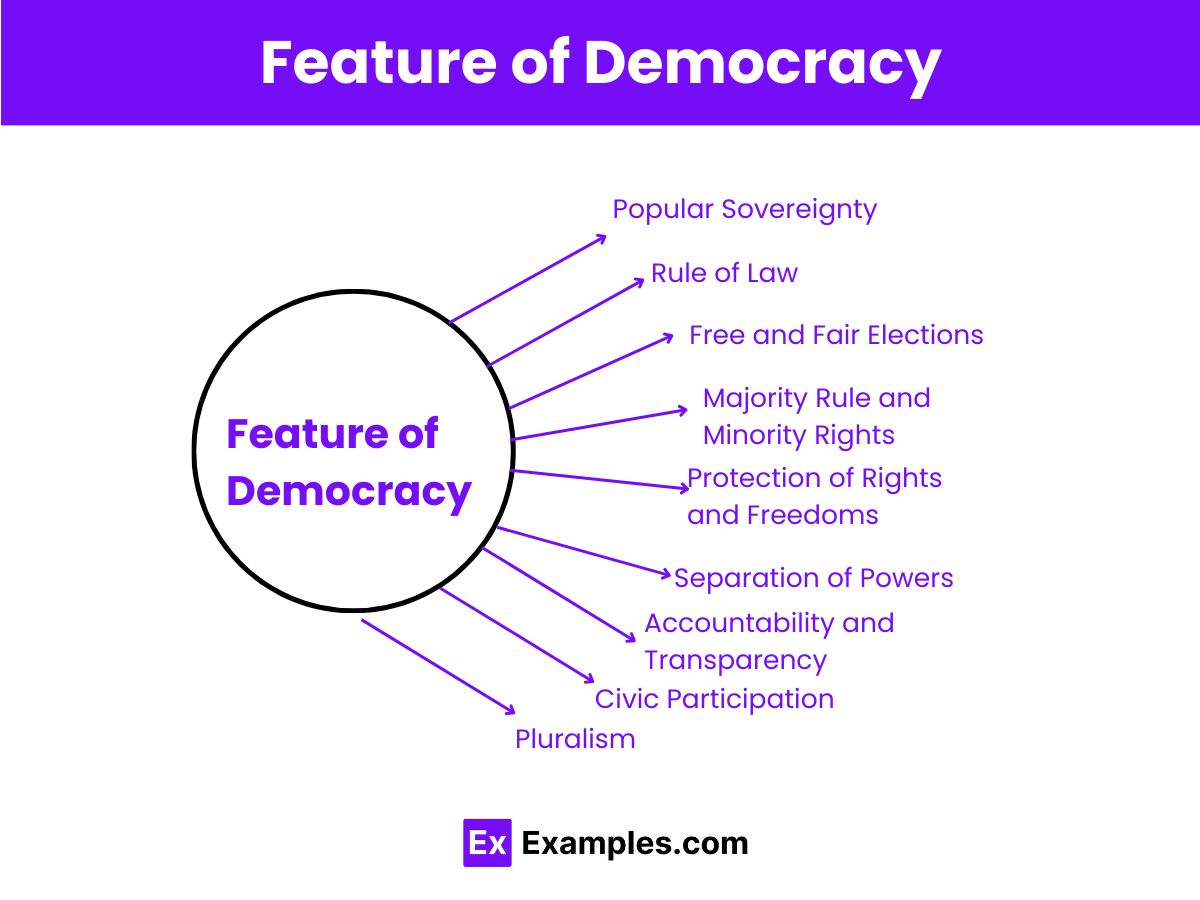
Democracy is characterized by several key features that make it distinct as a form of government. Here’s a brief explanation of these features, tailored to be easily understandable for both students and teachers:
- Popular Sovereignty: The power and authority of the government come directly from the people. In a democracy, it’s the citizens who hold the ultimate power over elected officials and the laws that govern them.
- Rule of Law: Everyone, including those in power, is subject to the law. Democracies operate under a system of established laws that apply equally to all citizens, ensuring justice and fairness.
- Free and Fair Elections: Democracies conduct regular, transparent elections where citizens have the right to vote freely for their leaders and representatives without coercion or manipulation.
- Majority Rule and Minority Rights: While the majority’s decision often prevails in a democracy, the rights of minorities are protected to ensure that all voices are heard and considered. This balance prevents any single group from dominating the others.
- Protection of Rights and Freedoms: Democracies safeguard fundamental human rights such as freedom of speech, religion, and assembly. These freedoms allow citizens to express themselves, gather, and practice their beliefs without fear of government retaliation.
- Separation of Powers: To prevent abuse of power, democratic systems often divide government responsibilities among branches (typically executive, legislative, and judicial). This separation ensures a system of checks and balances.
- Accountability and Transparency: Elected officials in democracies are accountable to the people. They must make decisions and perform their duties transparently to retain the trust and confidence of the citizens.
- Civic Participation: Democracy encourages active participation from its citizens, not only in voting but also in engaging with public issues, community discussions, and decision-making processes.
- Pluralism: This refers to the peaceful coexistence of various interests, convictions, and lifestyles. Democracies thrive on diversity, allowing different groups to coexist and influence the political process.
Types of Democracy
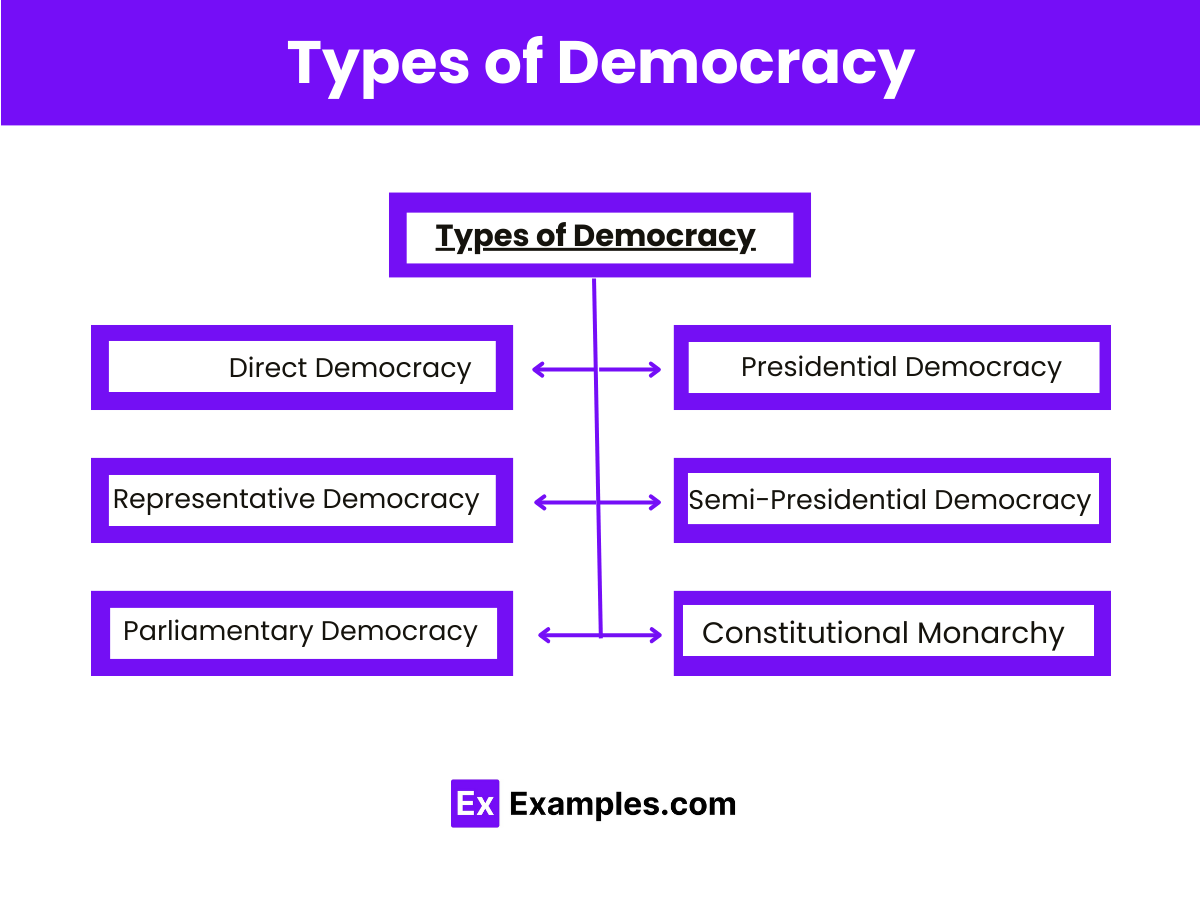
1. Direct Democracy
- Definition: In a direct democracy, citizens participate directly in decision-making processes without intermediaries or representatives.
- Features:
- Voting on Laws: Citizens have the power to vote on laws and policies directly.
- Referendums and Initiatives: These are common mechanisms, allowing citizens to propose or repeal legislation through direct vote.
- Example: Ancient Athens is a classic example, though modern direct democracy is often seen in the form of referendums in many countries.
2. Representative Democracy
- Definition: Representative democracy involves electing officials to represent the interests of the citizens in the legislative process.
- Features:
- Elections: Citizens elect their representatives at regular intervals.
- Accountability: Elected officials are accountable to the electorate for their actions and decisions.
- Example: Most modern nations, including the United States, the United Kingdom, and India, operate under this system.
3. Parliamentary Democracy
- Definition: A form of representative democracy where the government is appointed from the elected members of the legislature and is directly accountable to it.
- Features:
- Fusion of Powers: The executive branch is drawn from the legislature, and the two branches are interdependent.
- Prime Minister as Head of Government: The prime minister, supported by the cabinet, is usually the head of the government and is chosen from the majority party or coalition in the legislature.
- Example: The United Kingdom and Canada are examples of parliamentary democracies.
4. Presidential Democracy
- Definition: In a presidential democracy, the president is elected separately from the legislature and serves as both the head of state and the head of government.
- Features:
- Separation of Powers: There is a clear division between the executive, legislative, and judicial branches of government.
- Fixed Terms: The president and the legislature serve for fixed terms.
- Example: The United States is a prominent example of a presidential democracy.
5. Semi-Presidential Democracy
- Definition: A semi-presidential democracy combines elements of presidential and parliamentary systems, featuring both a president and a prime minister.
- Features:
- Dual Executive: The president usually deals with foreign policy and defense, while the prime minister handles domestic policy and runs the government day-to-day.
- Balanced Powers: The system is designed to balance powers between the president and the parliament.
- Example: France is an example of a semi-presidential democracy.
6. Constitutional Monarchy
- Definition: A constitutional monarchy is a form of democracy where a monarch acts as the head of state within the parameters of a constitution, alongside a parliamentary system.
- Features:
- Ceremonial Monarch: The monarch has limited powers and serves mostly ceremonial roles.
- Democratic Government: The government is democratically elected and exercises executive power.
- Example: The United Kingdom, Sweden, and Japan are examples where the monarchy plays a ceremonial role while the country operates under democratic governance.
Democracy in the founding documents of the United Nations
The founding documents of the United Nations (UN), particularly the UN Charter and the Universal Declaration of Human Rights (UDHR), embody democratic principles without explicitly using the term “democracy.” These documents, established in the mid-20th century, lay the foundation for international cooperation, peace, and the promotion of human rights, all of which are closely aligned with the ideals of democracy. Here’s a detailed look at how democracy is reflected in these key documents:
UN Charter
The UN Charter, signed on 26 June 1945, is the foundational treaty of the United Nations, an international organization aimed at preventing future wars and fostering international cooperation. While the Charter does not mention democracy explicitly, its principles are deeply democratic:
- Sovereign Equality of All Its Members: Article 2 of the Charter emphasizes the sovereign equality of all member states, reflecting the democratic principle of equal rights and self-determination of peoples.
- Human Rights and Fundamental Freedoms: The Charter asserts the importance of respecting human rights and fundamental freedoms for all, regardless of race, sex, language, or religion (Article 1, paragraph 3 and Article 55). This aligns with democratic ideals that emphasize individual rights and liberties.
- Promotion of Social and Economic Advancement: The UN aims to promote social progress and better standards of life (Article 1, paragraph 3), objectives that are typically pursued within democratic frameworks that prioritize public welfare and participation in societal development.
Universal Declaration of Human Rights (UDHR)
Adopted by the UN General Assembly on 10 December 1948, the UDHR is a milestone document that sets out, for the first time, fundamental human rights to be universally protected. It contains several provisions that directly support the principles of democracy:
- Right to Participation in Government: Article 21 of the UDHR states that everyone has the right to take part in the government of their country, directly or through freely chosen representatives, embodying the core democratic principle of participation.
- Universal Suffrage: It also declares that the will of the people, expressed through periodic and genuine elections by universal and equal suffrage, should be the basis of government authority, underlining the importance of voting rights in democracies.
- Freedom of Opinion and Expression: Article 19 emphasizes the right to freedom of opinion and expression, a cornerstone of democratic societies that allows for free discourse and dissent.
- Assembly and Association: Article 20 affirms the right to peaceful assembly and association, essential for the functioning of democracies where civil society can organize, protest, and influence policymaking.
Democracy and human rights are profoundly interconnected concepts, each reinforcing the other within societies that value freedom, equality, and justice. Here’s a detailed explanation of how democracy and human rights are intertwined:
Foundation of Democracy on Human Rights
At its core, democracy is a system of governance that respects and promotes the dignity and rights of all individuals. It is built upon the principle that power should be exercised in a manner that serves the common good and protects the freedoms and rights of each person. This democratic ideal is underpinned by a commitment to human rights, which include civil, political, economic, social, and cultural rights.
Civil and Political Rights
Civil and political rights are essential components of democracy, enabling individuals to participate freely in the political process. These rights include:
- Freedom of Expression: The right to express opinions, criticize leaders, and discuss political issues without fear of retaliation or censorship.
- Right to Vote and Be Elected: At the heart of democracy is the right of citizens to choose their leaders through free and fair elections, ensuring that government authority derives from the will of the people.
- Freedom of Assembly: The ability to gather peacefully for demonstrations or political events is crucial for expressing collective political opinions.
- Right to a Fair Trial: Ensuring justice and protecting individuals from arbitrary detention or punishment are foundational to the rule of law in democratic societies.
Democracy and Human Rights
Economic, Social, and Cultural Rights
Democracy also emphasizes the importance of economic, social, and cultural rights, recognizing that true freedom cannot exist without addressing basic human needs and rights such as:
- Right to Education: Ensuring access to education empowers citizens, enabling informed participation in democratic processes and promoting social equality.
- Right to Work and to Join Trade Unions: Employment rights and the ability to organize collectively are crucial for economic stability and for defending workers’ interests, contributing to a more equitable society.
- Access to Healthcare: A healthy population is vital for the functioning of democracies, with access to healthcare being a fundamental right that supports the well-being of citizens.
Interdependence and Reinforcement
The relationship between democracy and human rights is characterized by mutual reinforcement. The practice of democracy promotes the protection and realization of human rights by involving citizens in decision-making processes and holding governments accountable. Conversely, the observance of human rights creates an environment where democracy can flourish, ensuring that all individuals have the freedom to participate in the political, economic, and social life of their country.
Challenges and Global Context
Despite the intrinsic link between democracy and human rights, many countries face challenges in fully realizing these ideals. Issues such as corruption, discrimination, inequality, and suppression of dissent can undermine democratic institutions and erode human rights. The international community, through organizations like the United Nations and various human rights bodies, plays a critical role in advocating for democracy and human rights, providing a framework for accountability and support for nations striving to improve their governance and respect for human rights.
The UN General Assembly and Democracy
The United Nations General Assembly (UNGA) plays a pivotal role in promoting and upholding the principles of democracy on a global scale. It serves as a forum where all member states, regardless of their political, economic, or social systems, have equal representation and voice. Here’s how the UNGA relates to and supports democracy:
- Universal Representation: Each member state has one vote, embodying the democratic principle of equal representation. This setup mirrors a global form of democracy, where nations participate in decision-making processes.
- Resolutions on Democracy: The UNGA frequently adopts resolutions aimed at strengthening democracy worldwide. These resolutions often focus on promoting transparent, accountable governance, and the rule of law.
- Support for Democratic Institutions: Through its resolutions and debates, the UNGA encourages the development and strengthening of democratic institutions at the national and international levels, supporting electoral processes, and fostering participatory decision-making.
- Human Rights Advocacy: A core aspect of the UNGA’s work is the promotion and protection of human rights, which are integral to functional democracies. The Assembly works closely with the Human Rights Council to address violations and encourage states to uphold human rights standards.
Democracy and Elections
Elections are the cornerstone of democratic governance, providing a mechanism for the expression of the popular will and for holding leaders accountable. Here’s how democracy and elections interconnect:
- Free and Fair Elections: The essence of democracy lies in conducting regular, free, and fair elections. These elections must be inclusive, transparent, and competitive, allowing citizens to choose their leaders and influence policy directions.
- Universal Suffrage: Democracy advocates for universal suffrage, meaning all adult citizens have the right to vote without discrimination based on race, gender, social status, or wealth. This principle ensures that the government reflects the diverse interests of society.
- Electoral Systems and Processes: Democratic systems employ various electoral frameworks (e.g., proportional representation, majoritarian systems) to translate votes into political power. The choice of system can significantly impact the representation and inclusiveness of governance.
- Role of Electoral Commissions: Independent electoral commissions or bodies play a crucial role in overseeing the electoral process, ensuring that elections are conducted fairly and impartially. Their work includes voter registration, oversight of campaign practices, and the counting and certification of votes.
- Civil Society and Observers: Civil society organizations and international observers contribute to the integrity of elections by monitoring and reporting on electoral processes. Their presence helps deter fraud and enhances public confidence in the electoral outcomes.
Democracy and Civil Society: The United Nations Democracy Fund
The United Nations Democracy Fund (UNDEF) is a pivotal institution within the United Nations system, established to strengthen democratic governance around the world. Aimed at fortifying the voice and effectiveness of civil society, UNDEF plays a critical role in facilitating the growth and development of democracy through financial support and strategic initiatives. Here’s an in-depth look:
- Foundation and Purpose: Created in 2005, UNDEF supports projects that nurture and sustain the democratic process, especially in countries transitioning to democracy or facing substantial democratic deficits.
- Funding Priorities: It focuses on a broad spectrum of themes, including gender equality, community activism, rule of law, media freedom, and political participation, ensuring that democracy is cultivated from multiple fronts.
- Global Impact: By funding over 800 projects in more than 100 countries, UNDEF not only aids local civil society organizations but also encourages the inclusion of marginalized voices in the democratic dialogue, thus broadening the base of democratic participation.
- Grant Selection Process: UNDEF operates through a highly competitive annual grant cycle, where projects are selected based on their potential impact, innovation, and sustainability in promoting democracy.
Women and Democracy
The intersection of women and democracy is critical for the realization of true democratic governance that reflects the diversity and needs of the entire population. Women’s participation and leadership in democratic processes are essential for gender equality and for addressing specific challenges that affect half of the world’s population. Here are key points on the significance of women in democracy:
- Barriers to Participation: Despite progress, women worldwide continue to face significant barriers to political participation and leadership, including socio-economic constraints, gender stereotypes, and lack of access to education and resources.
- Empowerment and Representation: Efforts to enhance women’s roles in democracy focus on empowerment through education, legal reforms, and quota systems to ensure greater representation in political and legislative bodies.
- Impact of Women’s Leadership: Studies and historical evidence suggest that women’s leadership and participation lead to more inclusive, responsive, and transparent governance. Women in leadership positions often prioritize issues such as health, education, and social welfare, contributing to more comprehensive and equitable policy development.
- International Support and Initiatives: Various UN initiatives, including those by UNDEF and UN Women, support the enhancement of women’s political participation and leadership. These efforts include training programs, advocacy campaigns, and support for legal and policy reforms to remove barriers and promote gender equality in political spheres.
Democracy, Youth, and the United Nations
The engagement and active participation of youth in democratic processes are fundamental to the vitality and sustainability of democracies around the globe. Recognizing this, the United Nations has placed a significant emphasis on youth as critical agents of democratic change and development. Here’s a comprehensive look at the relationship between democracy, youth, and the United Nations:
- Youth as a Key Demographic: Youth (individuals aged 15-24) constitute a significant portion of the global population, offering immense potential for innovation, change, and democratic engagement. Their active participation in democracy is crucial for addressing contemporary challenges and ensuring the representation of diverse interests and perspectives.
- United Nations Frameworks for Youth Engagement: The United Nations has developed several frameworks and initiatives to support youth participation in democratic processes. Notably, the United Nations Programme on Youth, falling under the Department of Economic and Social Affairs (UN DESA), plays a pivotal role in integrating youth concerns into global agendas and promoting their active participation in all aspects of society, including democracy.
- Objectives of Youth Engagement in Democracy: The UN’s approach to engaging youth in democracy is multifaceted, focusing on:
- Education and Capacity Building: Empowering young people with the knowledge, skills, and values necessary to participate effectively in democratic life through education and capacity-building initiatives.
- Participation in Decision-Making: Encouraging the inclusion of young people in decision-making processes at all levels, ensuring their voices are heard in the formulation of policies that affect their lives and futures.
- Promotion of Civic Engagement: Supporting opportunities for young people to engage in civic activities, community service, and volunteerism, thereby fostering a culture of active citizenship and democratic participation.
- Key Initiatives and Programs: Various UN entities, including UNDEF and UNESCO, implement programs aimed at promoting youth participation in democracy. These initiatives range from leadership training and education programs to platforms for youth dialogue and policy input. Additionally, the United Nations Youth Strategy, “Youth 2030,” aims to elevate the UN’s work in supporting young people in areas such as engagement, participation, and advocacy.
- Challenges and Opportunities: While there are significant opportunities for youth to contribute to democratic governance, they also face challenges such as political alienation, socioeconomic barriers, and limited access to decision-making forums. The United Nations continues to work towards removing these obstacles, recognizing that a truly inclusive and participatory democracy must harness the energy, creativity, and aspirations of its youth.
- .
FAQ of Democracy
What is Democracy?
Democracy is a form of government where power lies with the people, who can vote on laws and policies or elect representatives to govern on their behalf.
How Does Democracy Work?
In a democracy, citizens participate in the political process through voting in elections, engaging in public discourse, and influencing decision-making either directly or via elected officials.
What are the Types of Democracy?
There are mainly two types: direct democracy, where people vote on laws directly, and representative democracy, where people elect officials to make decisions on their behalf.
Why is Democracy Important?
Democracy is crucial for ensuring freedom, equality, and the protection of individual rights, allowing citizens to have a say in how they are governed.
What Challenges Face Democracies?
Challenges include political polarization, misinformation, corruption, and the erosion of civil liberties, which can undermine trust and participation in democratic processes.
Democracy stands as a cornerstone of equitable and just societies, evolving through history to embrace diverse forms and practices. From ancient direct democracies to modern representative systems, it embodies the collective will and rights of the people. The United Nations, recognizing democracy’s vital role, actively supports its global promotion, ensuring inclusivity and participation of all societal sectors, notably women, youth, and civil society


